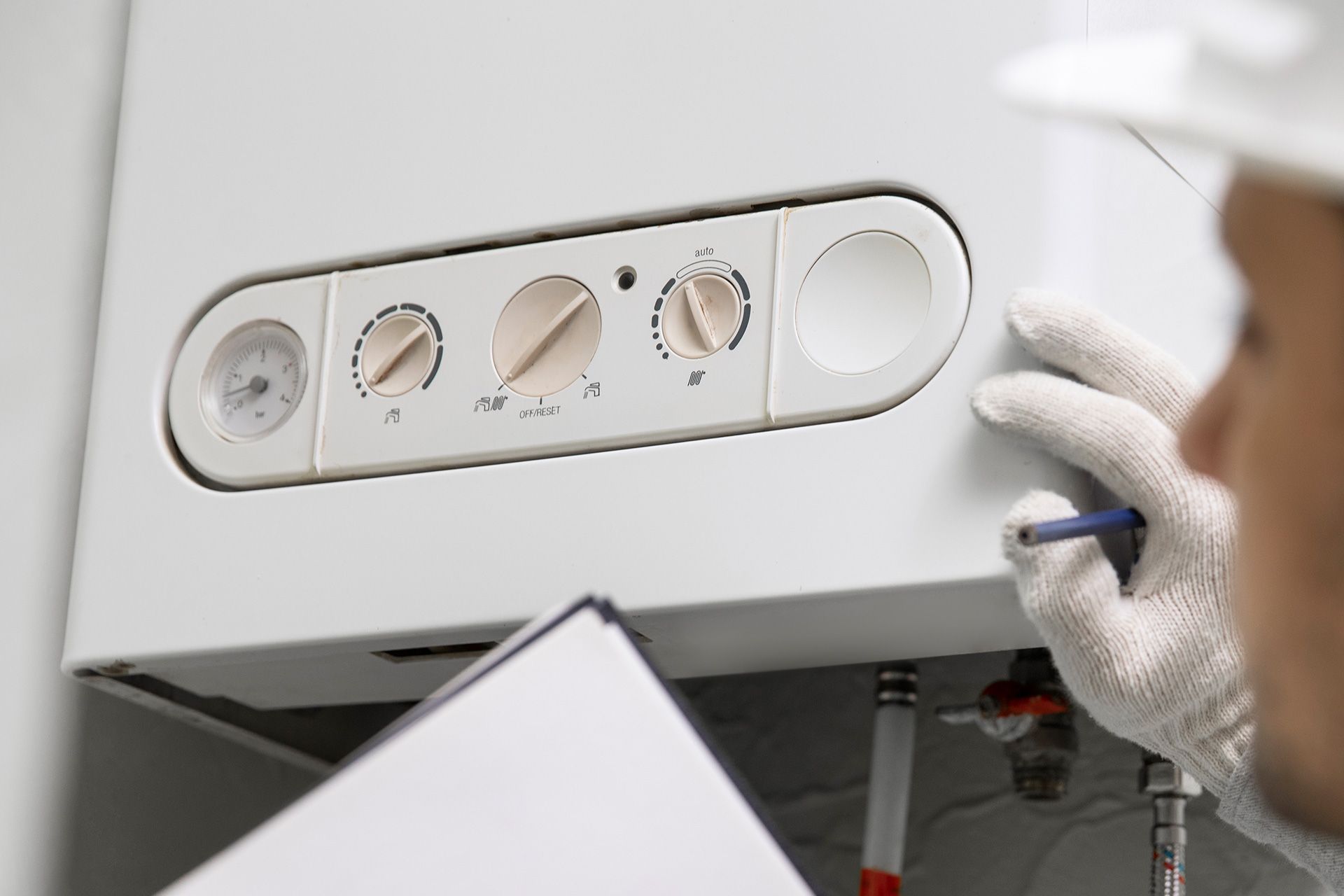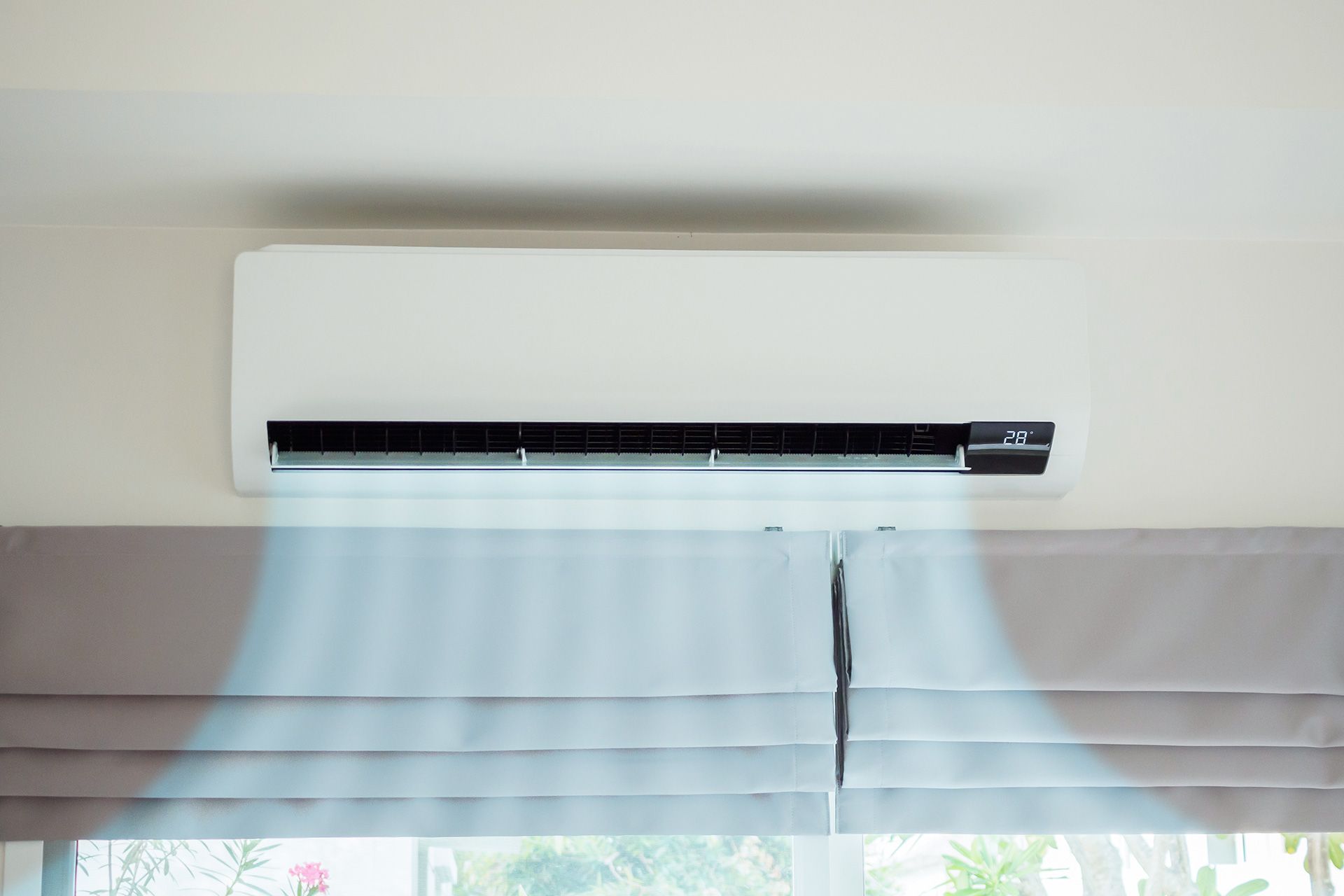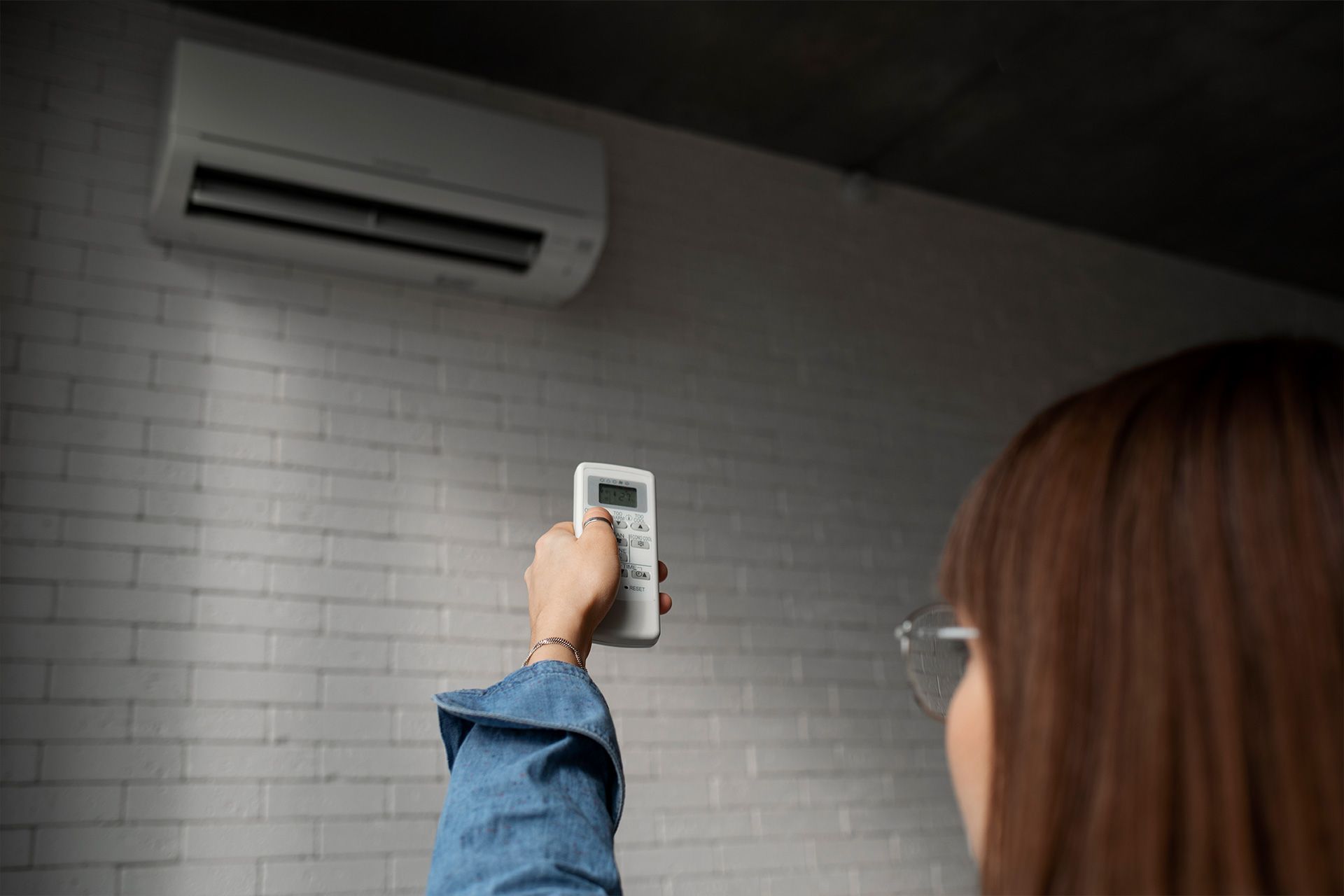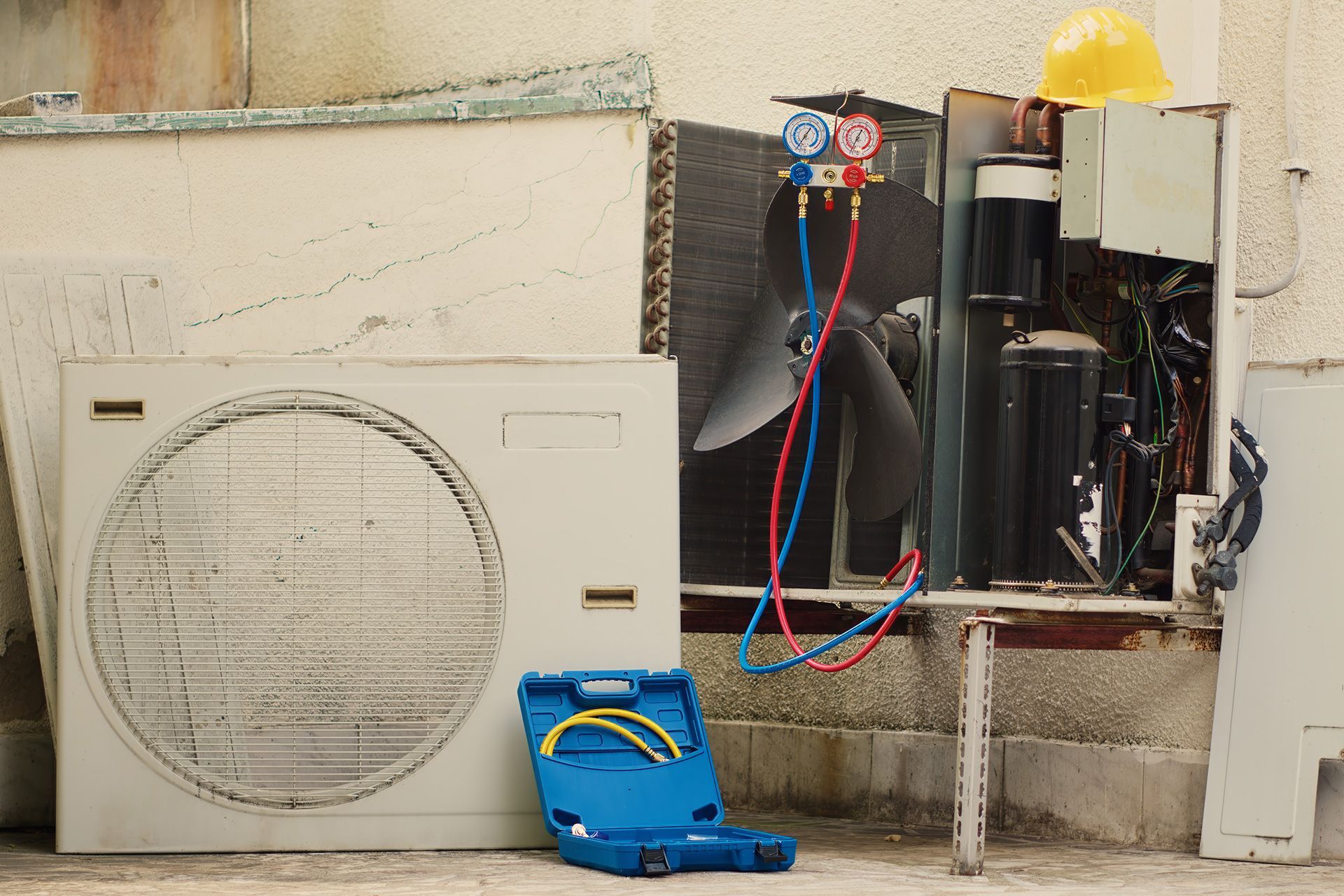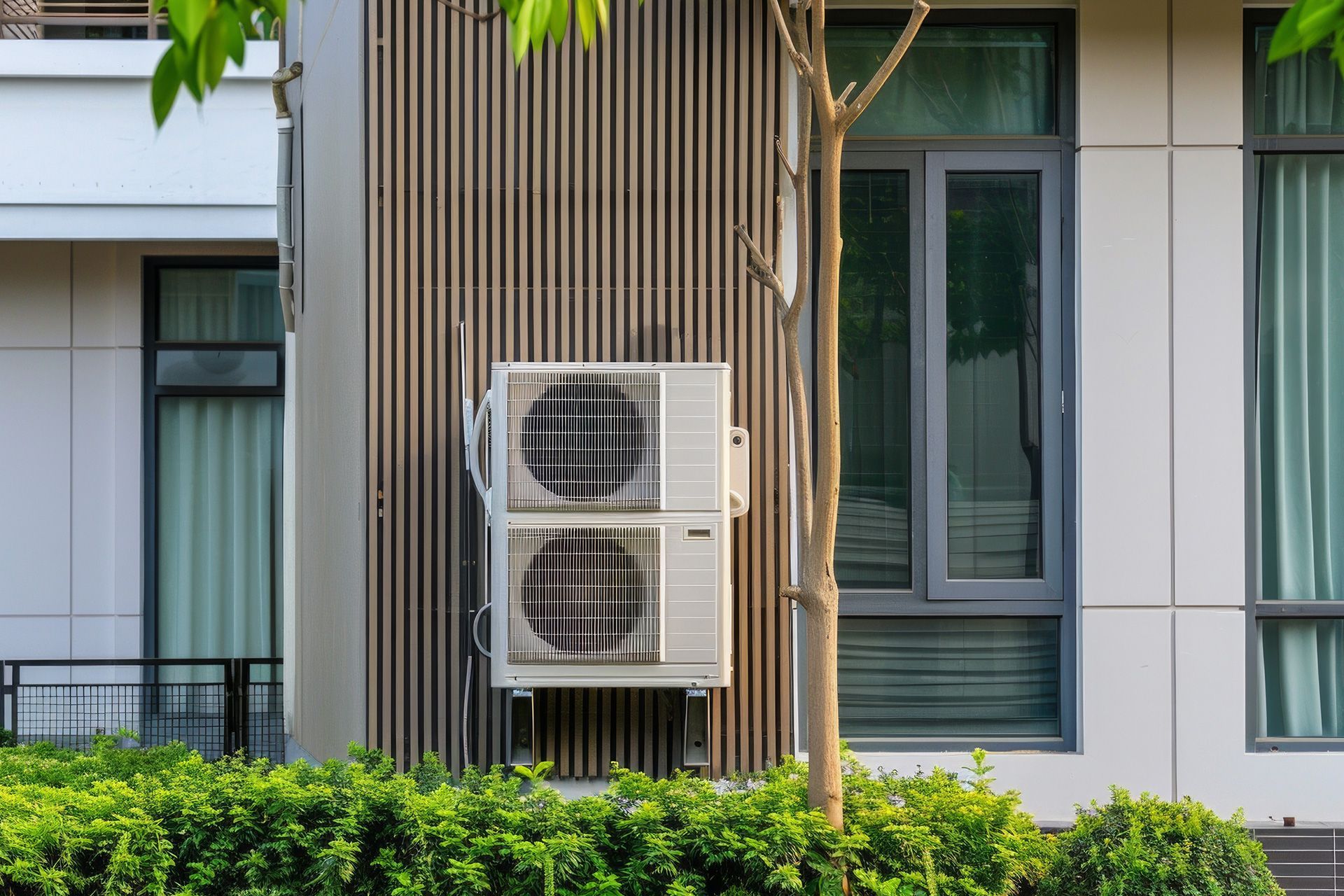Why Is My Air Conditioner Not Draining Water?
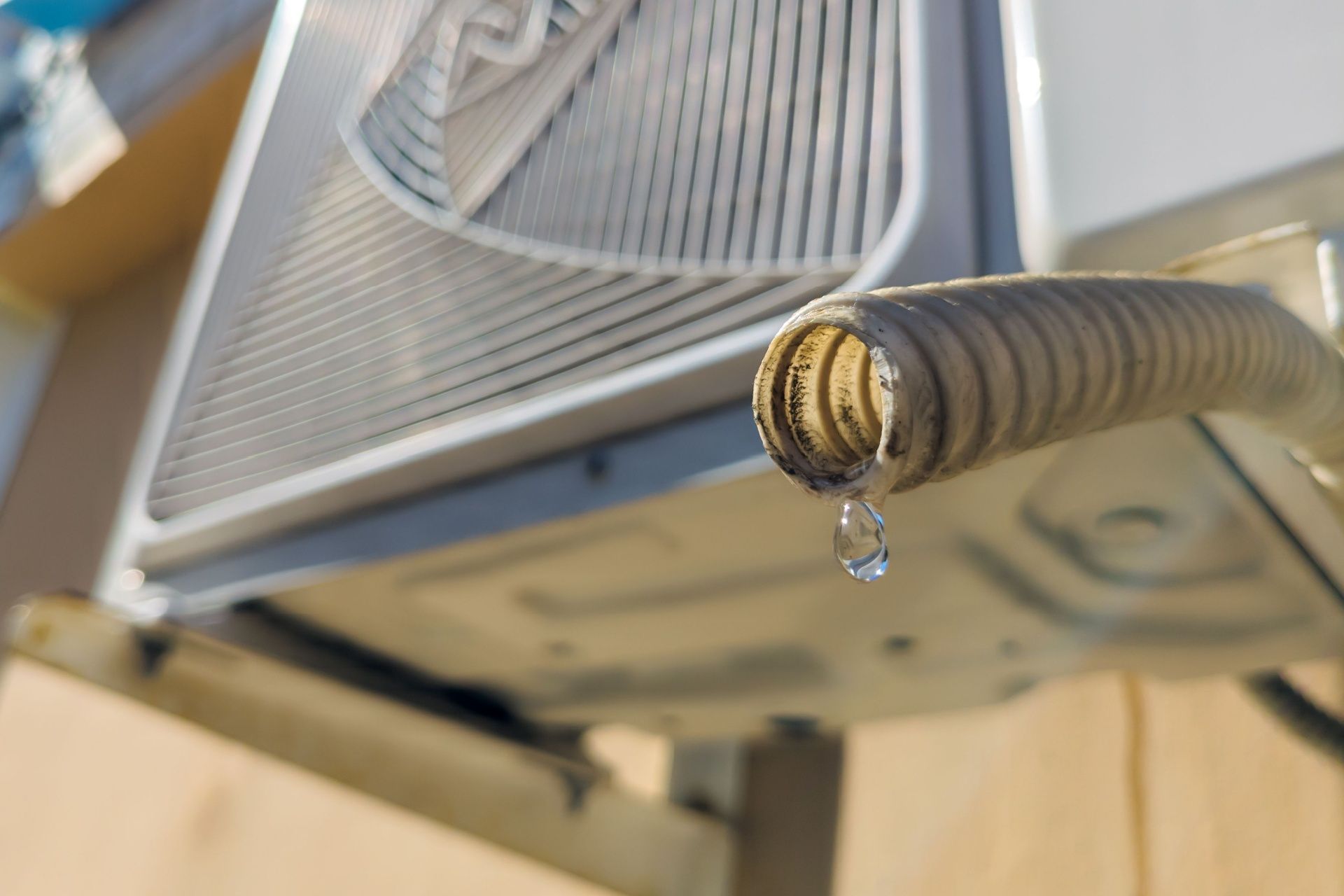
Did you know that around 90% of HVAC system failures are caused by a lack of maintenance? One of the most common issues is your AC not draining water, and it could be a sign of a bigger problem.
When your air conditioner runs properly, it not only cools your home but also pulls moisture out of the air. This water is supposed to drain away through a special pipe. But when something goes wrong, you might notice AC water leakage around your unit or no water draining at all. Both can be serious issues that need your attention.
Let’s explore why your air conditioner might stop draining and how regular AC maintenance can keep your system running smoothly.
Why Do Air Conditioners Drain Water?
Before we dive into problems, it's important to understand how your air conditioner works.
Your AC cools your home by pulling in warm air and removing heat and moisture from it. The moisture turns into water droplets, which collect in a drain pan.
From there, the water flows through a condensate drain line and exits your home, usually near an outside wall. If you don’t see water coming out of that drainpipe on a hot day, that’s a red flag.
Top Reasons Your AC Is Not Draining Water
There are a few common reasons why your air conditioner might stop draining water properly. Let’s break them down into simple explanations:
1. Clogged Drain Line
The Problem: Dust, dirt, mold, or even algae can build up in the drain line, causing a clog. This is the most common reason for AC water leakage or your AC not draining.
What You’ll Notice:
- Water pooling around the indoor unit.
- Musty smell near the AC.
- AC stops cooling efficiently.
How to Fix It: A professional can clear the line using a special vacuum or cleaning tool. Some homeowners use a wet/dry vacuum at the drainpipe end outside to try it themselves.
2. Full or Rusted Drain Pan
The Problem: The drain pan holds water before it exits through the drain line. If the pan is cracked or full, water will spill over and leak.
What You’ll Notice:
- Water under your air handler or AC unit.
- Rust marks on the floor or ceiling.
How to Fix It: Replace the damaged pan and make sure the new one fits your AC model. A professional HVAC technician can help.
3. Dirty Air Filter
The Problem: A clogged air filter reduces airflow over the evaporator coil. This can cause the coil to freeze. When it melts, the system may dump too much water at once—faster than the system can drain it.
What You’ll Notice:
- Ice on your AC coil.
- Sudden AC water leakage.
- Poor airflow from vents.
How to Fix It: Change your filter regularly—usually every 1-3 months. This also improves cooling performance and lowers energy bills.
4. Broken Condensate Pump
The Problem: Some AC units, especially in basements or attics, use a condensate pump to push the water outside. If the pump fails, water has nowhere to go.
What You’ll Notice:
- Loud or strange noises from the unit.
- Standing water around the unit.
- AC shuts off due to built-in safety switch.
How to Fix It: A technician can test and replace the pump if needed. Don’t ignore this—long-term leaks can damage your walls and floors.
5. Improper AC Installation or Tilt
The Problem: Your indoor AC unit must be installed with a slight tilt to help water flow into the drain line. If it’s installed flat or backward, water can stay in the pan or leak out.
What You’ll Notice:
- No water draining at all.
- Wet insulation or stains on the wall.
How to Fix It: Have a certified HVAC pro inspect the unit. They’ll make sure it’s angled properly for water flow.
Why AC Water Leakage Should Never Be Ignored
Ignoring a leaky AC or AC not draining can cause more than discomfort—it can cause real damage. Here’s why you should take quick action:
- Mold Growth: Standing water in your AC or near your walls can lead to mold, which is dangerous for your health.
- Electrical Issues: Water near wires or circuits is a major fire hazard.
- Ceiling and Floor Damage: Leaks from ceiling-mounted AC units can stain and damage drywall or flooring.
- System Failure: Left untreated, drainage problems can shut down your AC completely.
How to Prevent AC Drainage Problems
Luckily, most of these problems are easy to prevent with regular AC maintenance. Here are some tips:
Schedule Annual Tune-Ups
A professional AC Tune-up can clean your coils, drain line, and pan during a routine check-up. This keeps your system healthy.
Change Filters on Time
Mark your calendar to check or replace your air filter every 30-90 days. A clean filter helps your system run more efficiently.
Keep the Area Clean
Clear leaves, dust, and debris around your outdoor unit. Indoors, avoid placing furniture too close to the vents.
Watch for Warning Signs
Strange noises, musty smells, and warm air from vents are all signals that something’s wrong. Don’t wait—call a pro.
When to Call a Professional
While you can handle simple tasks like replacing filters or vacuuming a drainpipe, many problems require an expert’s help. You should call a licensed HVAC technician if:
- Water keeps pooling around your AC.
- Your AC shuts off often.
- You see ice forming on the coils.
- You don’t feel cold air even when the AC is running.
Professionals have the right tools and know-how to diagnose the issue quickly. They can also ensure your system stays safe and efficient.
Trust Old School Cooling for Expert AC Maintenance
At Old School Cooling, we believe in doing things the right way. Our licensed technicians use decades of experience to deliver reliable, honest service. Whether it’s a simple tune-up or a major AC repair, we treat your home like it’s our own.
We follow industry best practices and put your family’s comfort first. No guesswork, no upselling—just quality AC care you can trust.
Conclusion: Keep Your AC Draining and Your Home Dry
If your AC is not draining water, it’s a problem you shouldn’t ignore. From clogs and dirty filters to broken pumps and rusted pans, the issue could lead to AC water leakage, mold, or even full system failure.
Understanding the causes and keeping up with regular AC maintenance will protect your system and your home. And when in doubt, call in the pros.
Don’t wait for a leak—schedule your AC check-up with
Old School Cooling today!
Disclaimer: The information on this website and blog is for general informational purposes only and is not professional advice. We make no guarantees of accuracy or completeness. We disclaim all liability for errors, omissions, or reliance on this content. Always consult a qualified professional for specific guidance.

